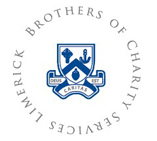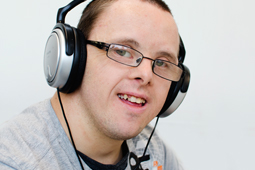
MULTIDISCIPLINARY SUPPORTS:
Psychology:
The Psychology Department of the Brothers of Charity Services, Limerick supports adults with mild, moderate and severe/profound learning disabilities attending our day, residential and respite services. Our activities include assessments of need, progress reviews, individual psychotherapy, group work, staff support/training and policy development. This support is delivered in a person centred context and the biopsychosocial model underlies our work.
Physiotherapy:
The aim of the Physiotherapy Service in Brothers of charity Services Limerick is to help restore movement and normal body function in cases of illness, injury and disability using best practice, person-centered approach and group intervention where necessary.
This Physiotherapy Service Limerick involves the assessment, diagnosing and treating of physical function, movement and mobility of adults with both intellectual and physical disabilities receiving service from the organization. The Physiotherapist, as part of the multi-disciplinary team, is trained in the use of evidence based, specialised hands-on treatment to restore, maintain and maximise optimal function and quality of life.
Social Work:
The Social Work Department in the Brothers of Charity Services Limerick aims to work jointly with the individuals who use our service, their families / carers, staff and other service providers. Social workers work as part of the multi-disciplinary team to identify and prioritise needs, advocate on behalf of and offer emotional and practical support, and empower individuals to have the best quality of life possible
Speech and Language Therapy:
As a member of the multidisciplinary team the speech and language therapist has clinical expertise in the areas of communication and feeding, eating, drinking and swallowing difficulties (FEDS)/ dysphagia.
A person-centred approach is adopted which considers the impact of communication/communication barriers and/or feeding, eating, drinking and swallowing difficulties on a service user’s life, the complexity of the issues and the hoped for outcome(s). Speech and language service delivery is committed to improving the knowledge and skill of staff in understanding and responding to service users with communication difficulties and/or feeding, eating, drinking and swallowing difficulties (FEDS)
Behaviour Support:
The Behaviour Support Team endeavours to support people who present with behaviours of concern that impedes their participation in ordinary life. The focus is person centred with the aim of interventions being improved quality of life. An eclectic range of approaches based on the Positive Behaviour Support framework are offered to people who use our services. These include proactive (environmental changes, focused interventions, skill enhancement etc.) and reactive strategies (crisis support). In addition to providing our adults with these interventions we also, through informal or formal means, give staff and families support where required.
Psychiatry:
The Brothers of Charity Services Limerick Psychiatry Department provides assessment, diagnosis, treatment and management of mental health problems in people with an intellectual disability in our day and residential services. The model of care we provide is a biopsychosocial one and there are close working relationships with the multidisciplinary team and general practitioners.
There are currently 2 Consultant Psychiatrists and a junior doctor (NCHT) in training to be a Psychiatrist in the Brothers of Charity Services, Limerick.
Occupational Therapy:
The Occupational Therapy Department of the Brothers of Charity Services in Limerick supports adults with mild, moderate and severe/profound learning disabilities attending our residential services. Occupational Therapy is a holistic profession that assesses and intervenes to improve the functioning of an individual in his/her life. Occupational therapy aims to enable people to achieve optimum health and wellbeing through participation in occupation. This is achieved through the provision of equipment, adapting the environment, modifying the task, teaching the skill, and educating the client/family/carers in order to increase participation in and performance of daily activities, particularly those that are meaningful to the client.


